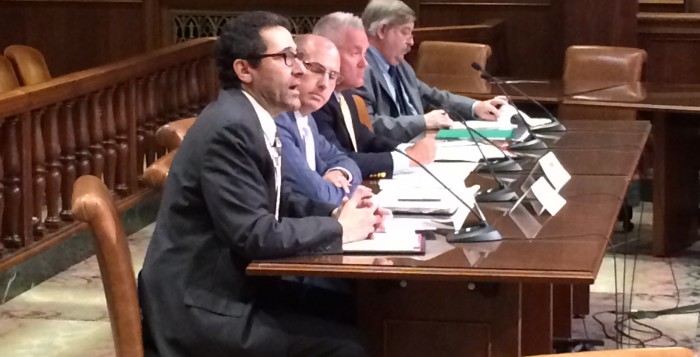The Centers for Medicare and Medicaid Services (CMS) released the fiscal year (FY) 2017 inpatient rehabilitation facility (IRF) prospective payment system (PPS) final rule in today’s Federal Register.
The majority of the final rule focuses on changes in the IRF Quality Reporting Program (QRP), pursuant primarily to the requirements of the Improving Medicare Post-Acute Care Transformation (IMPACT) Act of 2014. The rule continues to address implementation of the IMPACT Act requirements regarding resource use and quality measures, adding five new measures to the IRF QRP. Four measures will begin October 1, 2016, and are collected from Medicare claims data, so no additional reporting action from providers is required. These four measures include:
- Discharge to Community – Post-Acute Care (PAC) IRF QRP (claims-based);
- Medicare Spending Per Beneficiary (MSPB) – PAC IRF QRP (claims-based);
- Potentially Preventable 30 Day Post-Discharge Readmission Measure for IRFs (claims-based); and
- Potentially Preventable Within Stay Readmission Measure for IRFs (claims-based).
The remaining measure, Drug Regimen Review Conducted with Follow-up for Identified Issues, will begin October 1, 2018, and will require additional items on the IRF Patient Assessment Instrument (IRF PAI).
Other key provisions included in the final rule:
Standard Payment Rate
The standard payment rate conversion factor will increase in FY 2017 to $15,708, compared to the proposed amount of $15,674. This amount is the result of a 2.7 percent rehabilitation-specific market basket increase, minus a productivity adjustment of 0.3 percent and a 0.75 percent ACA adjustment. The FY 2016 standard payment rate conversion factor was $15,478.
CMS used the rehabilitation market basket for the first time. It was adopted last year. The standard payment update also accounts for budget neutrality factors for the wage index and labor related share of 0.9992 and for the CMG weight revisions of 0.9992 plus changes to the outlier threshold. Table 5 in the rule (not reproduced here) displays the FY 2017 payment rates.
Update to the CMG Weights, Lengths of Stay, and Comorbidities
CMS updated the Case Mix Group (CMG) weights using FY 2014 cost report data and the FY 2015 claims data as well as the average lengths of stay (ALOS) per CMG. Approximately 99.5 percent of the cases affected by the change in weights would be changed by less than 5 percent.
Outlier Threshold
CMS updates the outlier threshold amount to $7,984 from $8,658 for FY 2016 in order to maintain the outlier payments at three percent of total IRF payments in FY 2017. The national cost-to-charge ratio ceiling for FY 2017 is 1.29; the ceiling for rural IRFs is 0.522 and 0.421 for urban IRFs.
ICD-10-CM Presumptive Compliance Coding Changes
Unfortunately, CMS did not address the problems with the ICD-10-CM codes which eliminated certain key diagnoses from being allowed for consideration in calculating a provider’s presumptive compliance in meeting the 60 percent rule. The largest set of affected codes fall into the area of brain injury under IGCs 2.21 and 2.22.
CMS did, however, comment that IRFs are permitted to use “D” as an eligible seventh character for traumatic brain injury diagnosis codes on both the claim and the IRF PAI. However, for the reasons indicated in the FY 2015 IRF PPS final rule effective with discharges occurring on or after October 1, 2015, ICD-10-CM codes with the seventh character extension of “D” are not included in the ICD-10-CM versions of the “List of Comorbidities,” “ICD-10-CM Codes That Meet Presumptive Compliance Criteria,” or “Impairment Group Codes That Meet Presumptive Compliance Criteria.”
The payment changes to the rule will apply to IRF discharges on or after October 1, 2016 and before September 30, 2017. The quality reporting requirements are effective for discharges on or after October 1, 2106.
A more complete analysis of the rule will be forthcoming and reviewed/discussed extensively at the upcoming RCPA Outpatient Rehabilitation Committee meeting on Thursday, August 18, 2016, and the Medical Rehab Committee meeting on Thursday, September 8, 2016.


















